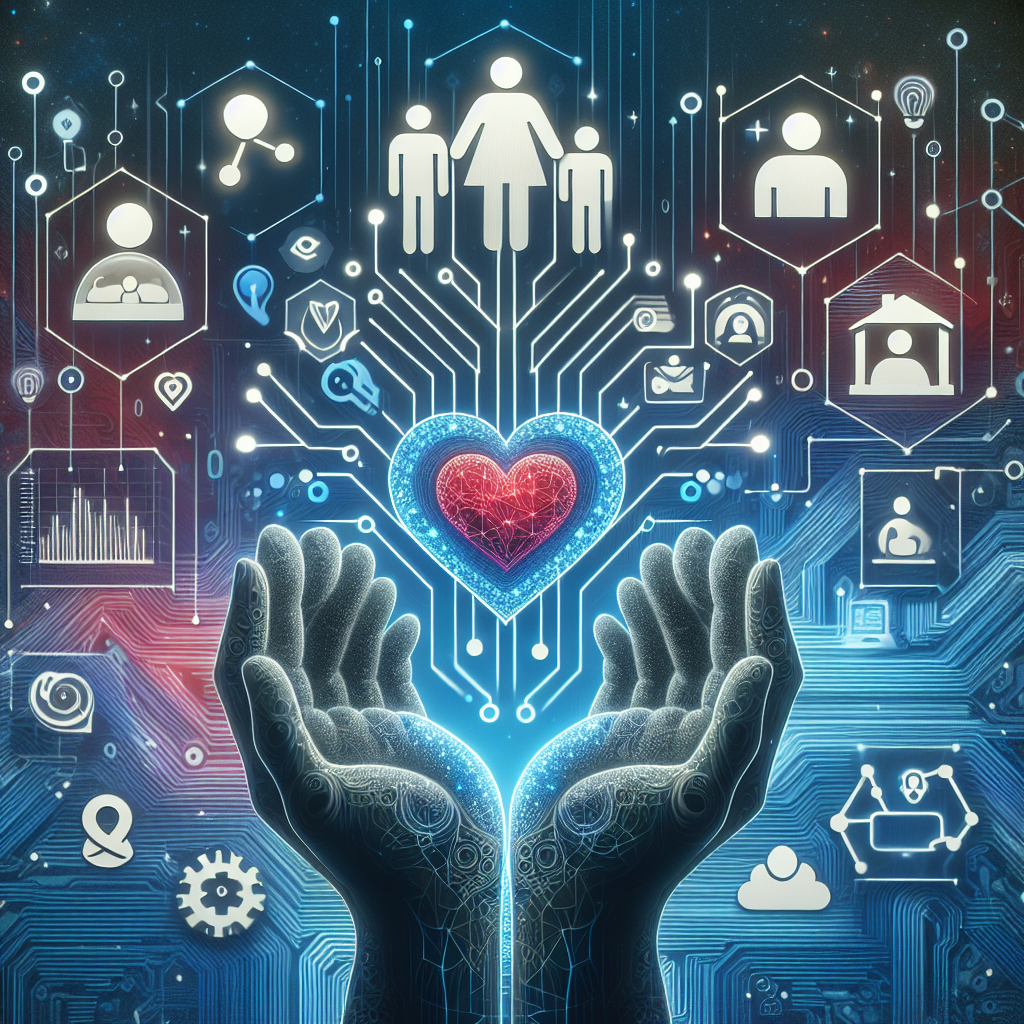In recent years, artificial intelligence (AI) has been increasingly used in various industries to improve efficiency, accuracy, and effectiveness. The field of social services is no exception, with AI being utilized to enhance the delivery of critical services to vulnerable populations. From predicting child abuse to improving mental health services, AI is revolutionizing the way social services are provided.
AI has the potential to transform social services by streamlining processes, improving decision-making, and increasing access to services. By analyzing vast amounts of data, AI can identify trends and patterns that can help social workers make more informed decisions. For example, AI can analyze social media posts, medical records, and other data sources to predict which children are at risk of abuse and neglect. This can help social workers intervene earlier and prevent harm before it occurs.
AI can also improve the efficiency of social services by automating routine tasks, such as scheduling appointments, processing paperwork, and managing caseloads. This can free up social workers to focus on more complex and high-priority cases, leading to better outcomes for clients. In addition, AI can help social workers identify the most effective interventions for each client by analyzing their individual needs and preferences.
In the field of mental health services, AI is being used to provide personalized treatment and support to individuals with mental health issues. Chatbots and virtual therapists powered by AI can offer round-the-clock support to individuals in crisis or in need of counseling. These tools can provide a safe and non-judgmental space for individuals to express their thoughts and feelings, helping them to cope with their mental health challenges.
AI can also help social services agencies better allocate resources and prioritize services based on the needs of their clients. By analyzing data on client demographics, service utilization, and outcomes, AI can help agencies identify gaps in services and target interventions to those who need them most. This can lead to more efficient use of resources and better outcomes for clients.
Despite the potential benefits of AI in social services, there are also concerns about privacy, bias, and ethical issues. AI algorithms are only as good as the data they are trained on, and if that data is biased or incomplete, it can lead to unfair or discriminatory outcomes. For example, AI algorithms used to predict child abuse may be more likely to flag certain families based on their race or socioeconomic status, leading to unjust interventions.
To address these concerns, social services agencies must be transparent about how they are using AI and ensure that their algorithms are fair and unbiased. This may involve regularly auditing and testing AI systems to identify and correct any biases or errors. Agencies should also prioritize privacy and data security to protect the sensitive information of their clients.
In conclusion, AI has the potential to revolutionize the field of social services by improving efficiency, accuracy, and effectiveness. By harnessing the power of AI, social services agencies can better serve vulnerable populations, prioritize resources, and provide personalized support to those in need. However, it is essential for agencies to address concerns about bias, privacy, and ethics to ensure that AI is used responsibly and ethically in the delivery of social services.
FAQs:
1. What are some examples of AI applications in social services?
– Some examples of AI applications in social services include predicting child abuse, improving mental health services, automating routine tasks, and prioritizing services based on client needs.
2. How can AI help social workers make better decisions?
– AI can help social workers make better decisions by analyzing data to identify trends and patterns that can inform their decision-making. For example, AI can analyze client data to predict which individuals are at risk of abuse or neglect, helping social workers intervene earlier and prevent harm.
3. What are some concerns about using AI in social services?
– Some concerns about using AI in social services include privacy, bias, and ethical issues. AI algorithms can be biased if they are trained on incomplete or biased data, leading to unfair or discriminatory outcomes. Agencies must be transparent about how they are using AI and prioritize privacy and data security to protect their clients’ sensitive information.
4. How can social services agencies address concerns about bias in AI algorithms?
– Social services agencies can address concerns about bias in AI algorithms by regularly auditing and testing their systems to identify and correct any biases or errors. Agencies should also prioritize fairness and transparency in the use of AI to ensure that their algorithms are fair and unbiased.
5. What are some potential benefits of using AI in social services?
– Some potential benefits of using AI in social services include improving efficiency, accuracy, and effectiveness. AI can help agencies streamline processes, automate routine tasks, and provide personalized support to individuals in need. By harnessing the power of AI, social services agencies can better serve vulnerable populations and prioritize resources to those who need them most.

